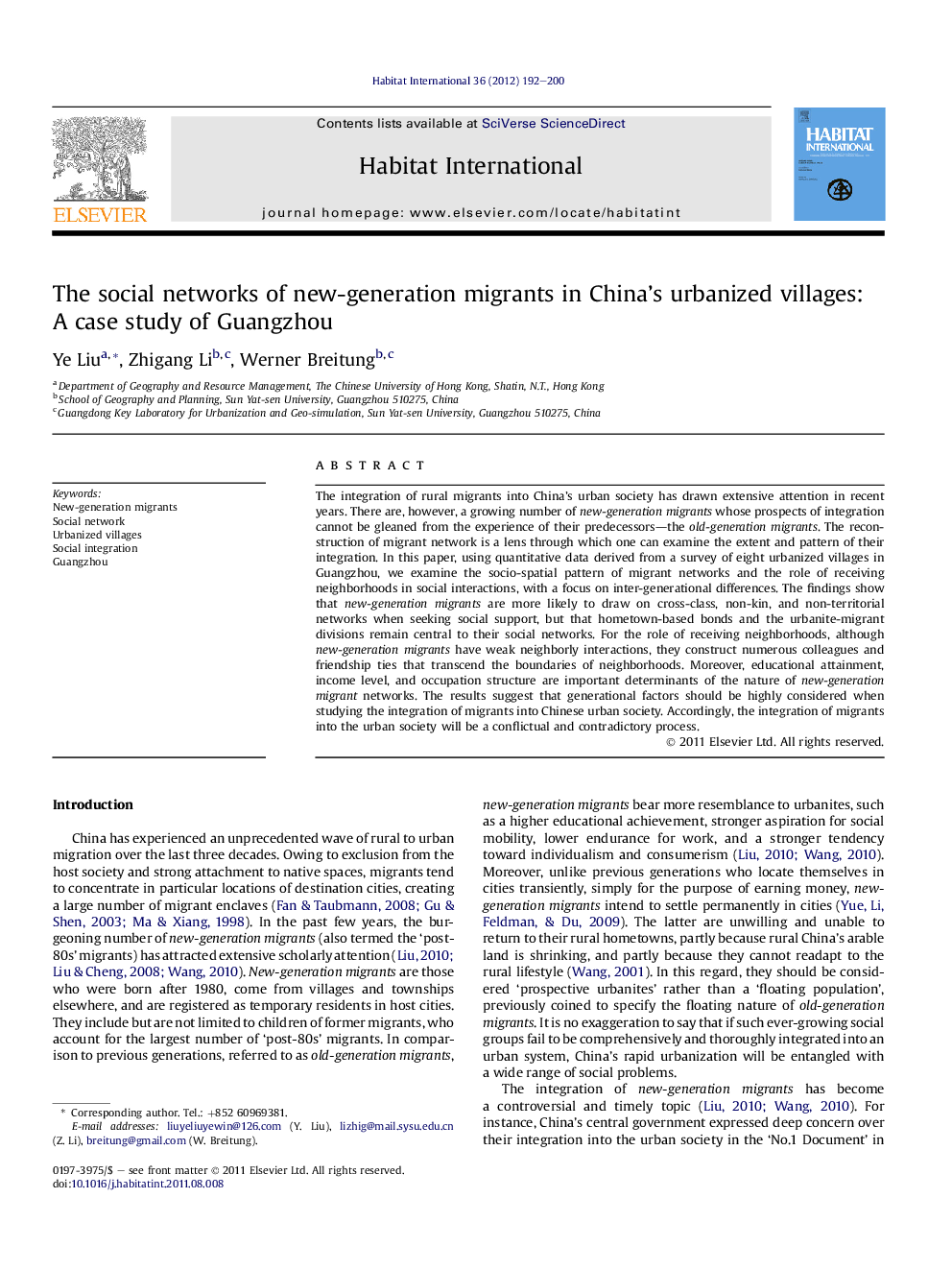| Article ID | Journal | Published Year | Pages | File Type |
|---|---|---|---|---|
| 1048135 | Habitat International | 2012 | 9 Pages |
The integration of rural migrants into China’s urban society has drawn extensive attention in recent years. There are, however, a growing number of new-generation migrants whose prospects of integration cannot be gleaned from the experience of their predecessors—the old-generation migrants. The reconstruction of migrant network is a lens through which one can examine the extent and pattern of their integration. In this paper, using quantitative data derived from a survey of eight urbanized villages in Guangzhou, we examine the socio-spatial pattern of migrant networks and the role of receiving neighborhoods in social interactions, with a focus on inter-generational differences. The findings show that new-generation migrants are more likely to draw on cross-class, non-kin, and non-territorial networks when seeking social support, but that hometown-based bonds and the urbanite-migrant divisions remain central to their social networks. For the role of receiving neighborhoods, although new-generation migrants have weak neighborly interactions, they construct numerous colleagues and friendship ties that transcend the boundaries of neighborhoods. Moreover, educational attainment, income level, and occupation structure are important determinants of the nature of new-generation migrant networks. The results suggest that generational factors should be highly considered when studying the integration of migrants into Chinese urban society. Accordingly, the integration of migrants into the urban society will be a conflictual and contradictory process.
► Intergenerational effects on the socio-spatial pattern of migrants’ social networks. ► The role of receiving neighborhoods in migrants’ social contact and interactions. ► The new-generation has socioeconomically diverse but subethnically homogeneous ties. ► They have weak neighborly interactions but construct non-territorial relationships. ► Socio-economic status determines the non-territorial nature of migrant networks.
